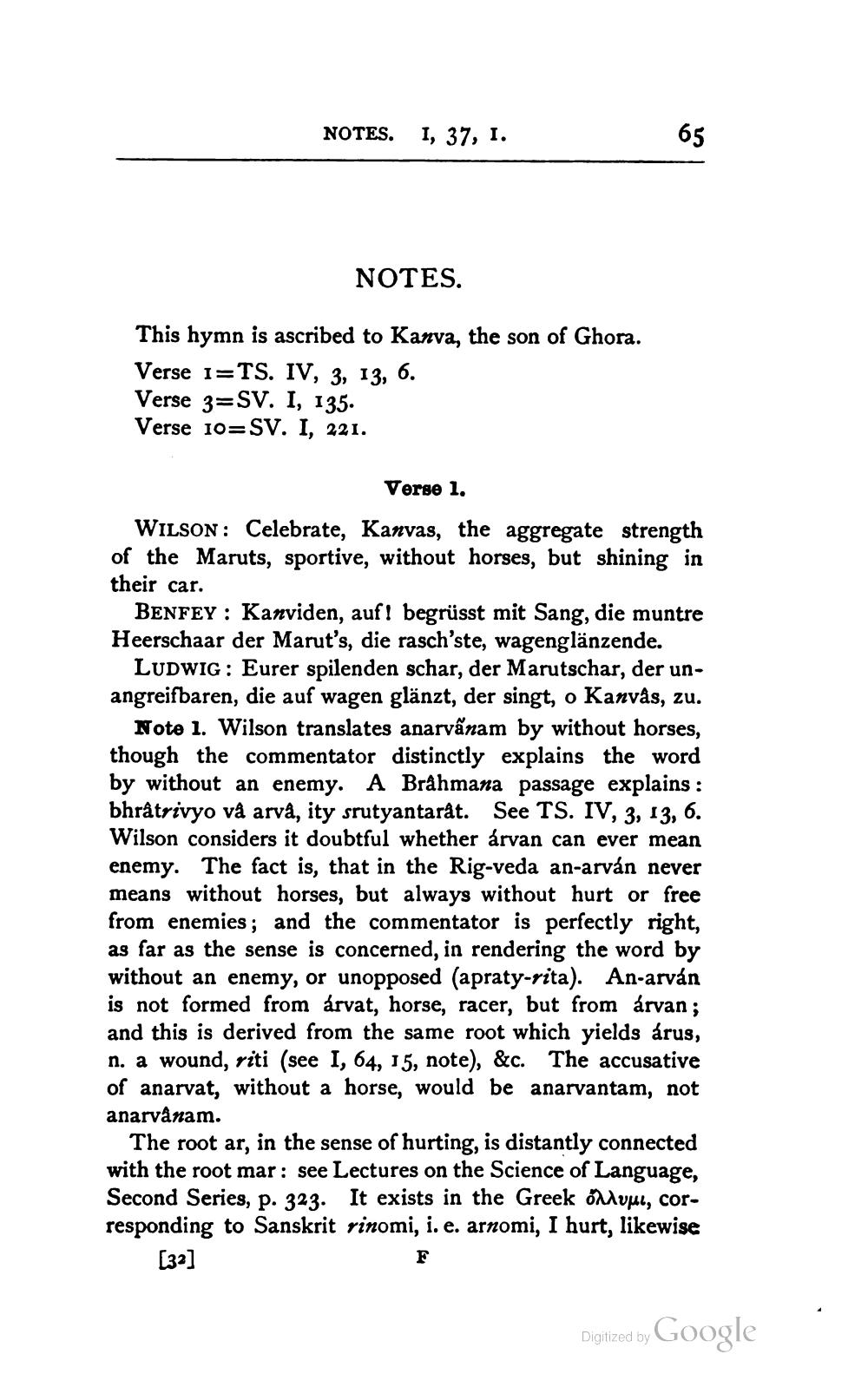________________
NOTES.
I, 37, I.
_
65
NOTES.
This hymn is ascribed to Kanva, the son of Ghora. Verse 1=TS. IV, 3, 13, 6. Verse 3=SV. I, 135. Verse 10=SV. I, 221.
Verse 1
WILSON: Celebrate, Kanvas, the aggregate strength of the Maruts, sportive, without horses, but shining in their car.
BENFEY : Kanviden, auf! begrüsst mit Sang, die muntre Heerschaar der Marut's, die rasch’ste, wagenglänzende.
LUDWIG: Eurer spilenden schar, der Marutschar, der unangreifbaren, die auf wagen glänzt, der singt, o Kanvas, zu.
Noto 1. Wilson translates anarvấnam by without horses, though the commentator distinctly explains the word by without an enemy. A Brahmana passage explains : bhrstrivyo và arva, ity shutyantarật. See TS. IV, 3, , 6. Wilson considers it doubtful whether árvan can ever mean enemy. The fact is, that in the Rig-veda an-arván never means without horses, but always without hurt or free from enemies; and the commentator is perfectly right, as far as the sense is concerned, in rendering the word by without an enemy, or unopposed (apraty-rita). An-arván is not formed from arvat, horse, racer, but from árvan; and this is derived from the same root which yields árus, n. a wound, riti (see I, 64, 15, note), &c. The accusative of anarvat, without a horse, would be anarvantam, not anarvånam.
The root ar, in the sense of hurting, is distantly connected with the root mar: see Lectures on the Science of Language, Second Series, p. 323. It exists in the Greek Orvui, corresponding to Sanskrit rinomi, i.e. arnomi, I hurt, likewise
[32]
Digitized by
Digitized by Google




